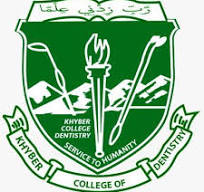Repository & Self-Archiving Policy
The journal of Khyber College of Dentistry (JKCD) allows the authors to deposit any version of their work in any institutional or subject repository including;
1. Preprint
2. Author’s Accepted Manuscript
3. Version of Record
No embargo is applied.
Since there are multiple ways to share different stages of a manuscript during the publication process, a summary of acceptable practices is provided below:
- Pre Print (Author’s Original Manuscript - AOM )
A pre-print is the author’s original version of the article before peer review.
Prior to acceptance for publication, authors may share the pre-print on:
- Their personal, self-maintained website.
- A legally compliant pre-print server (e.g., arXiv, bioRxiv, or similar platforms).
Upon publication, authors must update the pre-print with the following acknowledgment and a link to the final published version:
“This is a pre-print of an article published in the Journal of Khyber College of Dentistry [Year, Volume, Issue]. The final authenticated version is available online at: [https://doi.org/DOI].”
- Author’s Accepted Manuscript (AAM)
The AAM is the peer-reviewed version accepted for publication but before copyediting and typesetting.
Authors may share the AAM immediately upon acceptance (without embargo) on:
- Their personal website.
- Their employer’s internal website.
- Institutional or funder repositories.
After publication, the following acknowledgment must be included with a link to the published version:
“This is a post-peer-review, pre-copyedit version of an article published in the Journal of Khyber College of Dentistry [Year, Volume, Issue]. The final authenticated version is available online at: [https://doi.org/DOI].”
- Published Article (Version of Record)
The Version of Record (VoR) is the final, published article (online/print) after peer review, copyediting, and typesetting.
Authors may freely share the published article (without embargo) via:
- Scholarly collaboration networks (e.g., ResearchGate, Academia.edu, Google Scholar).
- Social media (e.g., Twitter/X, LinkedIn).
- Personal, professional, or institutional websites.
Preferred citation:
“This is the published version of an article in the Journal of Khyber College of Dentistry [Year, Volume, Issue]. Access the definitive version at: [https://doi.org/DOI].”









